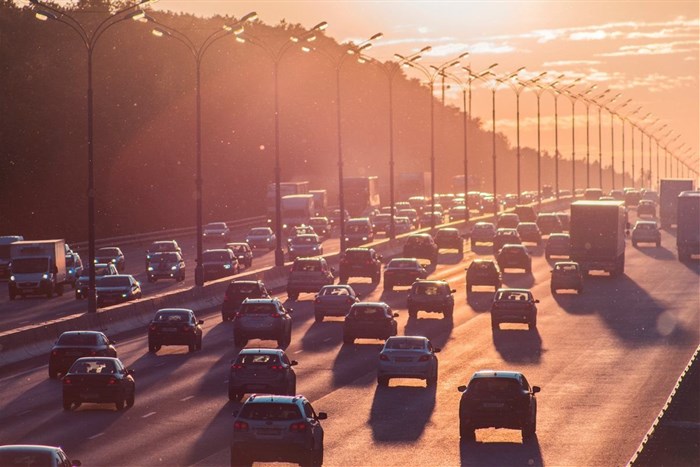
Related
Top stories






AutomotiveHilux Custom Builds offers purpose-built solutions for your business
Toyota South Africa Motors 16 Feb 2026
More news


Marketing & Media
Ads are coming to AI. Does that really have to be such a bad thing?














The report is run by the National Business Initiative (NBI), in partnership with Business Unity South Africa (BUSA) and Boston Consulting Group (BCG).
Globally, the transport sector is one of the significant contributors to greenhouse gas emissions, with most transport today running off internal combustion engines powered by fossil fuels. Global CO2 emissions from the transport sector grew by 8% year-on-year and rebounded to a 37% share of emissions in 2021 post-pandemic. In South Africa, transport is the third largest emitting sector, with almost 55 Mt CO2 emissions contributing more than 10% to the country’s national gross emissions.
The report details how the decarbonisation of South Africa’s transport sector can unfold and covers the suite of levers that must be deployed and trade-offs that must be made in charting a course to net zero by 2050 as part of a just transition.
The sector faces the dual challenge of decarbonising, while also improving the quality and effectiveness of transport as a service to society.
Fully decarbonising South Africa's transport sector will require four core levers, each with unique techno- and socio-economic trade-offs, namely:
1. Reducing demand through improved spatial planning,
2. Shifting to more efficient transport modes (like rail compared to road),
3. Accelerating the adoption of green technology in road transport (like EVs), and
4. Greening the remaining fossil fuels left in the car parc (through low carbon fuels).
For example, on shifting to more efficient transport modes, the study finds that in a net zero scenario 15-20% of road traffic must be shifted to rail. This is also key to addressing road congestion and improving the efficiency of the overall transport system, however, it will require, as a pre-requisite, a fundamental change in the countries rail system to improve safety, reliability and efficiency. Another highlight, related to the acceleration of green technology, is that ~750K EVs will be required on the roads by 2030, with a phase out of ICE vehicle sales needed by 2035.
Achieving these objectives will not be easy, and will require integrated policy support, coordinated infrastructure investments and collaboration amongst all key stakeholders.
The Climate Pathways and Just Transition study has been anchored on a robust analytical fact base, the assumptions and outcomes of which have been debated and socialised with a broad set of 450+ stakeholders from business, government, civil society and labour in 200+ hours of workshops to drive alignment and establish the credibility of the proposed net-zero pathways. The work was also supported by a group of Champions representing 30+ of South Africa’s largest companies across a range of sectors.
The Climate Pathways and Just Transition study is an ongoing project; several detailed analytical and model-based sector-level reports have been released. The remaining reports in the series will focus on heavy manufacturing and the building and construction sector. Access all the reports here.
1. Transport in South Africa is the third largest emitting sector, with >90% of transport sector emissions arising from road transport. It faces the dual challenge of decarbonising while improving transport as a service for consumers and enabling other sectors to decarbonise.
2. Global trends in technology and policy can drive a 50% reduction in emissions by 2050, with limited local support – primarily due to electric vehicle (EV) adoption in road transport.
3. Without a deliberate and coordinated local effort, South Africa’s transport sector will be on a trajectory that is inconsistent with the South Africa’s climate commitments or Nationally Determined Contribution (NDC) under the Paris Agreement by 2030 and inconsistent with net-zero by 2050.
4. With the right support, the transport sector can be fully decarbonised by 2050 via four key levers:
• Improved spatial planning;
• Mode-shift to rail and public transport;
• Accelerated zero-emission technology adoption, coupled with the decarbonisation of the national grid; and
• Use of green fuels for hard-to-abate aviation and shipping.
5. A net-zero pathway requires shifting 15%–20% of road traffic to rail, banning new internal combustion engine (ICE) vehicle sales by 2035 and enabling zero emission vehicle (ZEV) uptake for remaining road transport, as well as blending to 100% sustainable aviation fuels by 2050.
6. Of all levers that must be pulled to get the transport sector to net-zero, the one that is likely to have the largest financial impact on the end-user of transport as a service is the greening of fuels. The use of green fuels is highly OPEX-intensive with a fuel premium of up to 2.1x for e-ammonia, 2.5x for e-methanol and 1.7–2.1x for e-kerosene, even in 2050.
7. South Africa should strategically prioritise high value/value-added exports by developing local beneficiation and industrialisation capacity to mitigate the impact of costly green synfuels (e-ammonia and e-methanol) on shipping costs considering the high trade-weighted distance to key trade partners (such as China, EU and US).
8. Key uncertainties and signposts lie in the choice of battery electric vehicles (BEVs) vs fuel cell electric vehicles (FCEVs) in heavy duty transport, autonomous vehicle adoption, the impact of spatial planning, and the interaction between formal and informal public transport.
9. To achieve this ambitious pathway, South Africa must build and operate an efficient public transport system, invest in rail, and port infrastructure as well as improve their reliability and efficiency, and incentivise EV adoption and public transport use.
10. Immediate next steps and no-regret actions include incorporating EVs in the EU trade agreement to reduce import tariffs, investing in revitalising the rail infrastructure, and improving governance within rail and port management.